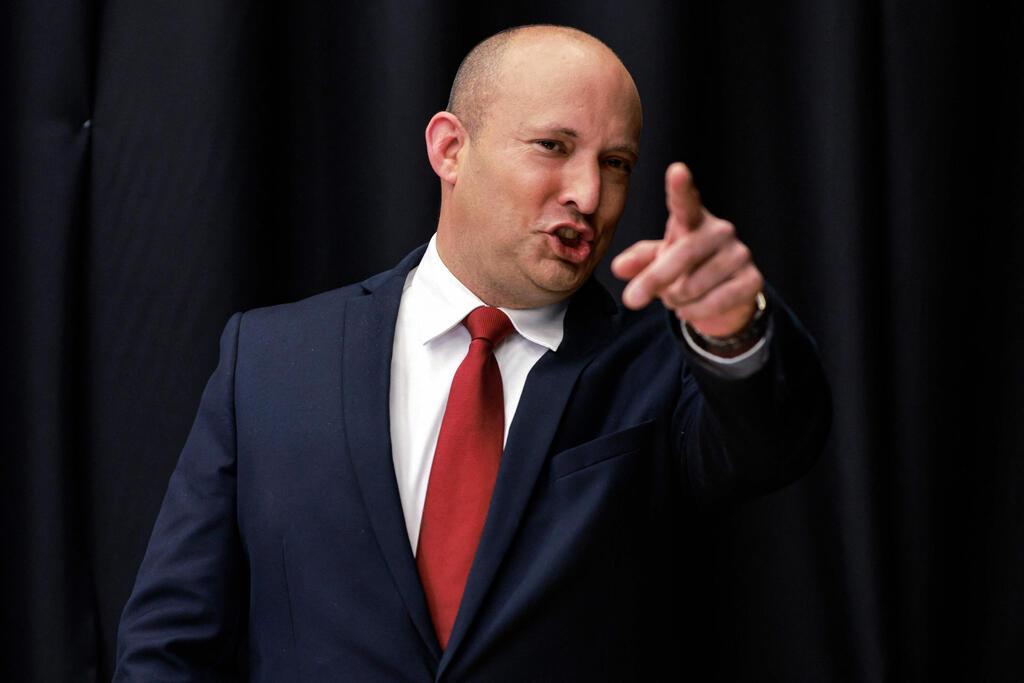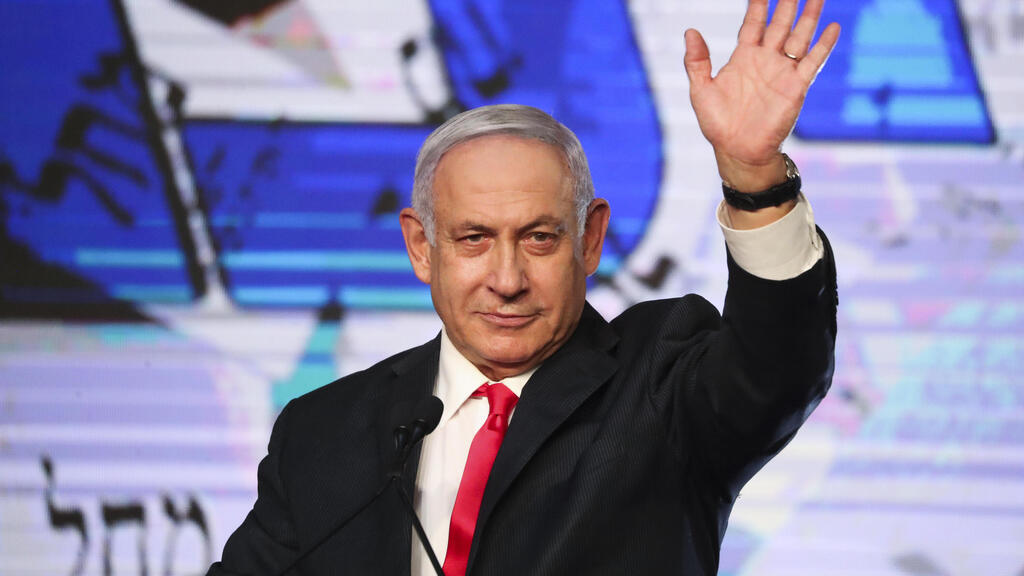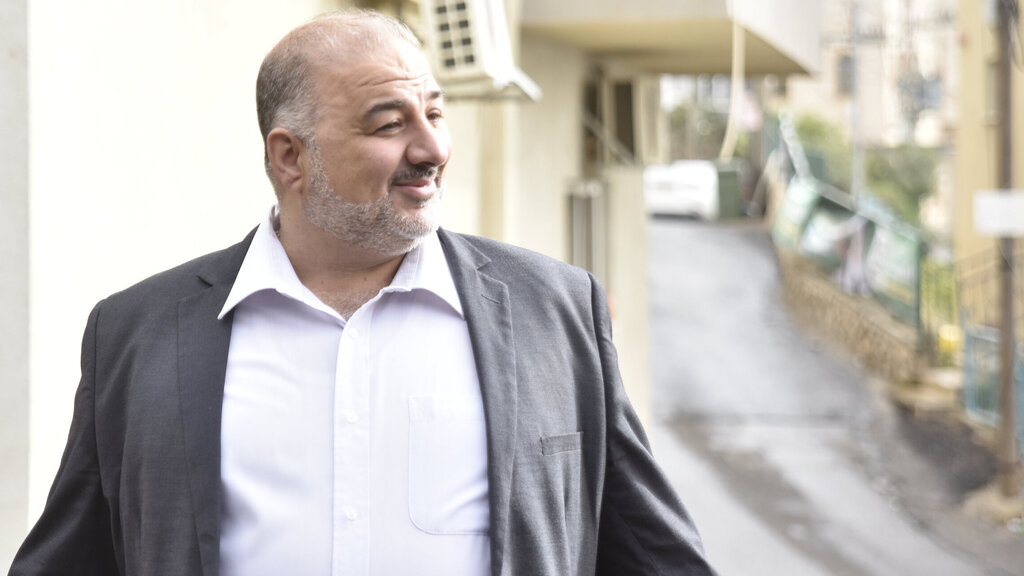Getting your Trinity Audio player ready...
It is somewhat pathetic to watch politicians claim victory after Israel's March 23 elections.
Their pre-ballot promises to act only in the interests of the country were never believable and egos were guaranteed to take precedence over any willingness to compromise.
3 View gallery


Naftali Bennett speaking at a conference in Jerusalem the week before the March 23 elections
(Photo: AFP)
As we celebrate Passover and the freedom of the Jewish people and head towards Israel's independence Day, we can only hope that the various party leaders understand the public's desire to be freed from this political quagmire that may still lead us to a fifth election cycle since April 2019.
A brave leader is required, but who that might be is still unclear.
Naftali Bennett, the chairman of the Yamina party has the makings of such a leader. In his election campaign he vowed to unite Israelis and avoided boycotting any possible partners. He alone would be able to lead the country out of the stalemate and towards a new dawn.
The religious Zionist movement – not the party that hijacked and desecrates its name - had always aspired to be a bridge between religious and secular Israelis.
3 View gallery


Prime Minister Benjamin Netanyahu speaks after exit polls failed to name him the clear winner in the March 23 elections
(Photo: AP)
Rabbi Abraham Isaac Kook, the father of religious Zionism, said it was incumbent on his flock to find the way to bring together humanism and faith, to unite nationalism and a universalist world view.
Such values are what is required now to unite left and right-wing Israelis of all persuasions, and a brave religious Zionist leader would be able to cross the divide and apply those values to all Israelis - including the Arab community.
This is a golden opportunity for Bennet to prove he is up to the task. He must distance himself from the political bickering that has preoccupied other party leaders and present an alternative leadership. This is especially the case when it comes to Bezalel Smotrich and his extremist partners who will lead to religious and national extremism that will further tear Israeli society apart.
The Islamist Ra'am party under Mansour Abbas can also be a contributing partner to Bennett's efforts. The religious makeup of Ra'am could be acceptable to those among religious Zionists who partnered easily with Christian evangelicals. Reaching out to the Arab population is in keeping with the values of Rabbi Kook and the religious Zionist movement.
3 View gallery


Mansour Abbas was confident of his role as kingmaker following the March elections
(Photo: Sharon Tzur)
When the exit polls came out on election night, Bennet modestly said the wellbeing and future of the country was his his primary concern.
He is the only one who can embrace the mosaic of the State of Israel and cast aside those who seek to negate its Jewish values.
This is an opportunity that must not be missed. Choosing Bennett as the next prime minister might be our only chance to avoid yet another election.

